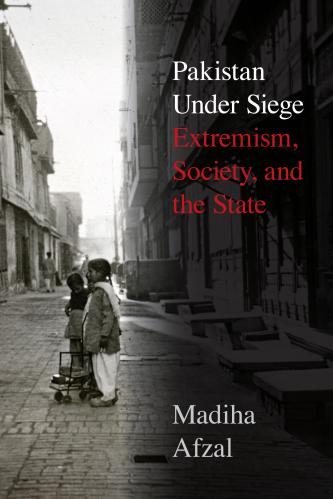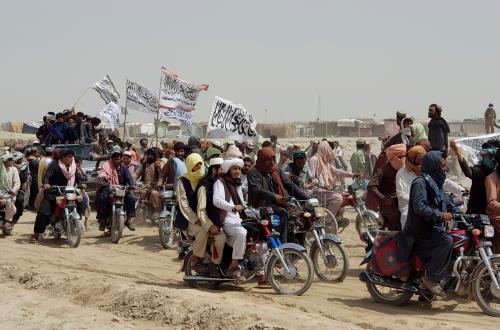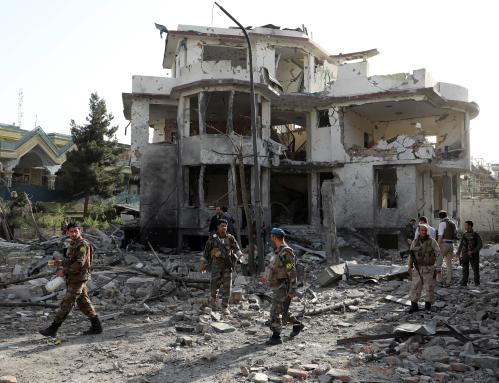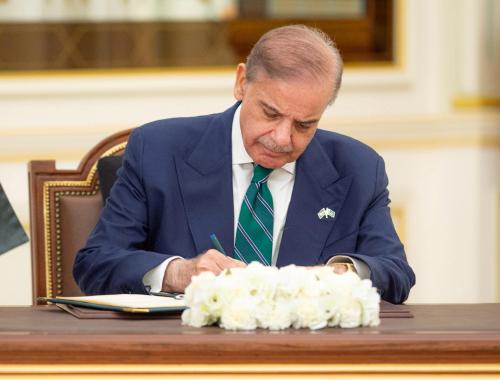Pakistan’s Inter-Services Intelligence Directorate (ISI) has long supported the Taliban, but the militant group’s victory in Afghanistan could end up creating serious blowback for Pakistan, Bruce Riedel writes. This post was originally published on Lawfare.
The Afghan Taliban and their Pakistani army patrons are back in Kabul before the 20th anniversary of 9/11. Pakistan’s army Inter-Services Intelligence Directorate (ISI) has backed the Taliban since the group’s origin in the mid-1990s. Under intense pressure in September 2001, the ISI briefly removed its experts and assistance, creating the same panic and flight to the Taliban that the U.S. withdrawal just did to the Afghan army. But the ISI quickly renewed its support and that aid continues today. The Taliban/ISI victory in Afghanistan will have significant consequences for Pakistan, some of which may be dangerous and violent.
Mullah Omar, the founder of the Taliban, was trained by the ISI during the war against the Soviets in the 1980s. When he was wounded, he got medical attention in a Pakistani hospital. After the Soviets retreated out of Afghanistan, he was one of many warlords fighting for control of the country. As he created the Taliban, the Pakistani army gave him support for the drive on Kabul in 1996 that gave the Taliban control of most of the country. Pakistan provided experts and advisers for the Taliban military, oil for its economy and was their supply route to the outside world.
After the American invasion of Afghanistan, Omar went into exile in Pakistan along with most of his lieutenants. With the ISI’s help, they rebuilt the infrastructure in the borderlands and gradually stepped up attacks on the NATO and Afghan forces. Pakistani aid went far beyond sanctuary and safe haven for the leadership and cadres and their families — it included training, arms, experts, and help in fundraising, especially in the Gulf states. On occasion, Pakistani advisers accompanied the Taliban on missions inside Afghanistan. The ISI is particularly close to the Haqqani network in the Taliban. Omar most likely died in Karachi; his death was not announced for months.
It is fair to assume that the ISI helped the Taliban plan its blitzkrieg this summer. The Taliban’s seizing of the north reflected memories of its enemies using bases there in the late 1990s to resist the Taliban and the CIA using those facilities to bring down the Taliban in 2001. The plan also prioritized seizing border crossings, especially in the west, which kept Iran from providing aid to its Shiite Hazara allies in Afghanistan.
Officially, Pakistan said it supported a political solution, but there is no sign that it pressed the Taliban to make a deal with the Ghani government. We will soon see if the Taliban includes other political parties in the new regime.
Islamist parties in Pakistan have celebrated the victory in Afghanistan. Undoubtedly the ISI is hailing the fall of Kabul as their humbling of a second superpower, but it is savvy enough to do its gloating in private.
Other clients of the ISI are also big winners, especially the group Lashkar-e-Tayyiba, which carried out the attacks on Mumbai in 2008, also with ISI support and training of the attackers. That group has long been closely linked to the Taliban and has hundreds of fighters embedded in the Taliban.
Another beneficiary of the collapse of the Afghan government is likely to be the Pakistan Taliban who have been at war with the Pakistani army for years. The Afghan Taliban have a murky relationship with their Pakistani counterpart. Certainly, individuals in the Afghan Taliban are in touch with their Pakistani fellow believers and will offer safe haven in their new conquests. There may be a serious blowback in time.
The Afghan Taliban are virulently anti-Shiite. There have already been incidents of violence. That will increase sectarian tension in Pakistan which has a much larger Shiite population than Afghanistan.
The Biden administration has taken a curious lack of interest in Pakistan. Routine contacts with the army, diplomats, and spies have continued but President Biden has ignored the country. He has not spoken with Pakistani Prime Minister Imran Khan. Khan is the elected leader of the sixth most populous country in the world with a growing nuclear weapons arsenal. Secretary of State Antony Blinken has been to New Delhi but not to Islamabad. The fiasco in Kabul should be a wake-up call to get involved.
The Brookings Institution is committed to quality, independence, and impact.
We are supported by a diverse array of funders. In line with our values and policies, each Brookings publication represents the sole views of its author(s).










Commentary
Pakistan’s problematic victory in Afghanistan
August 24, 2021